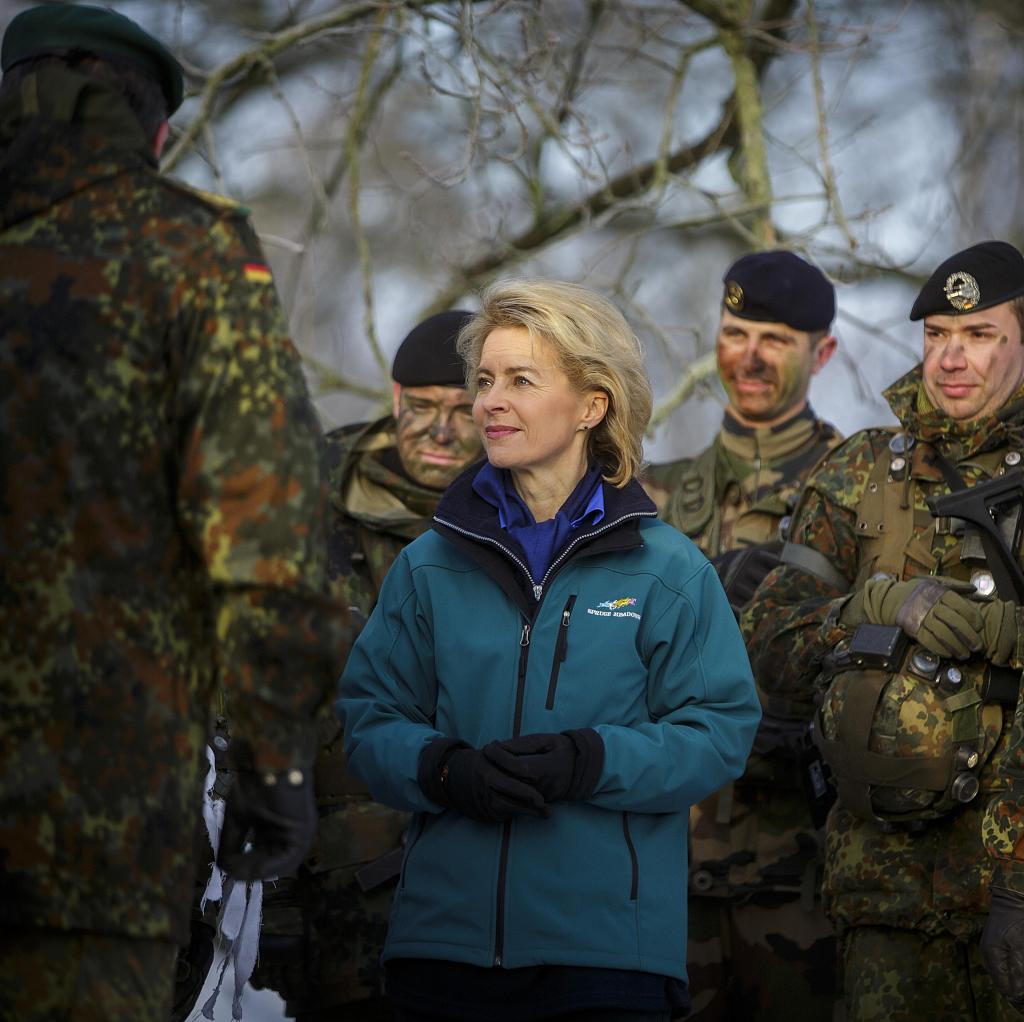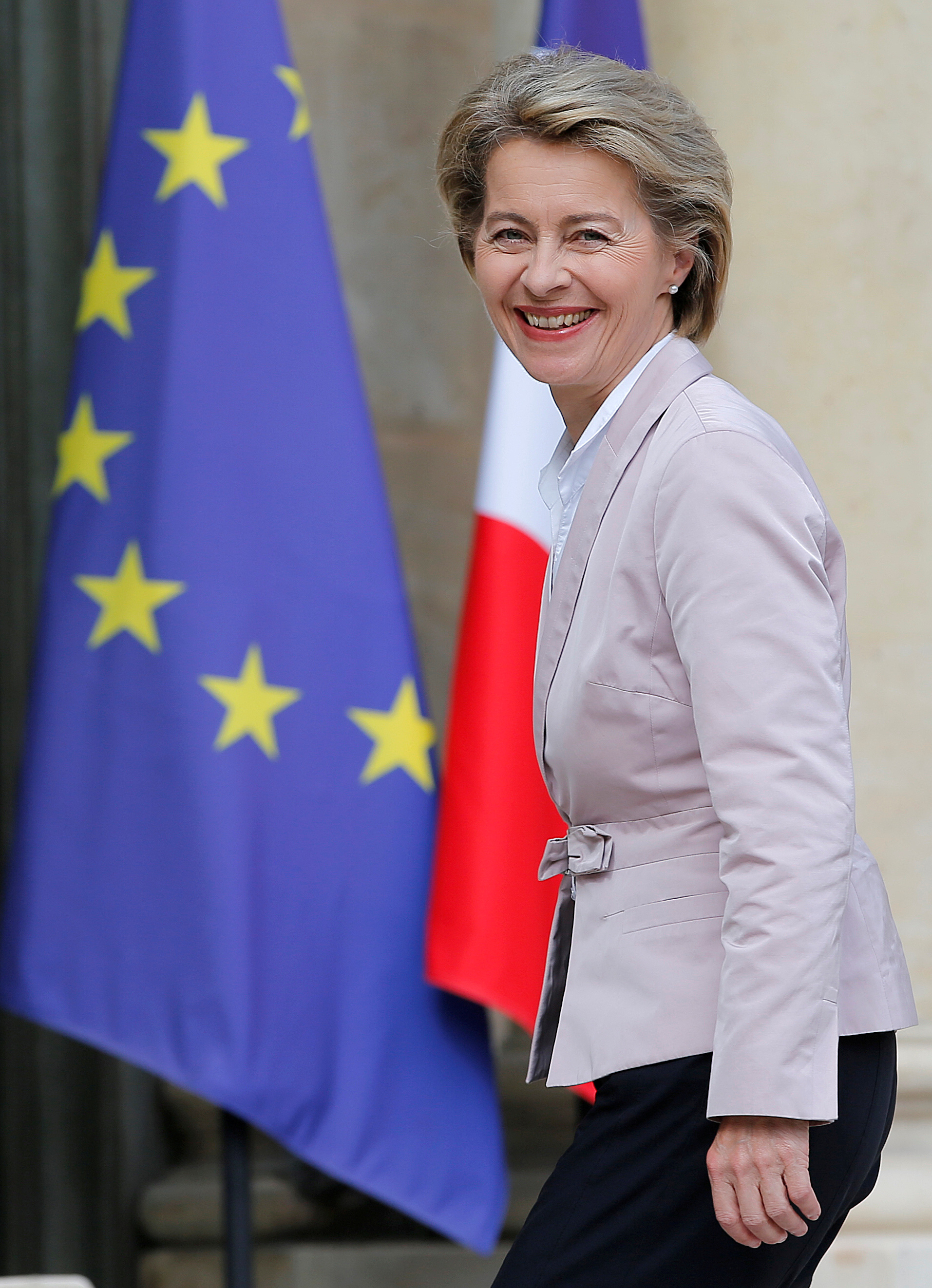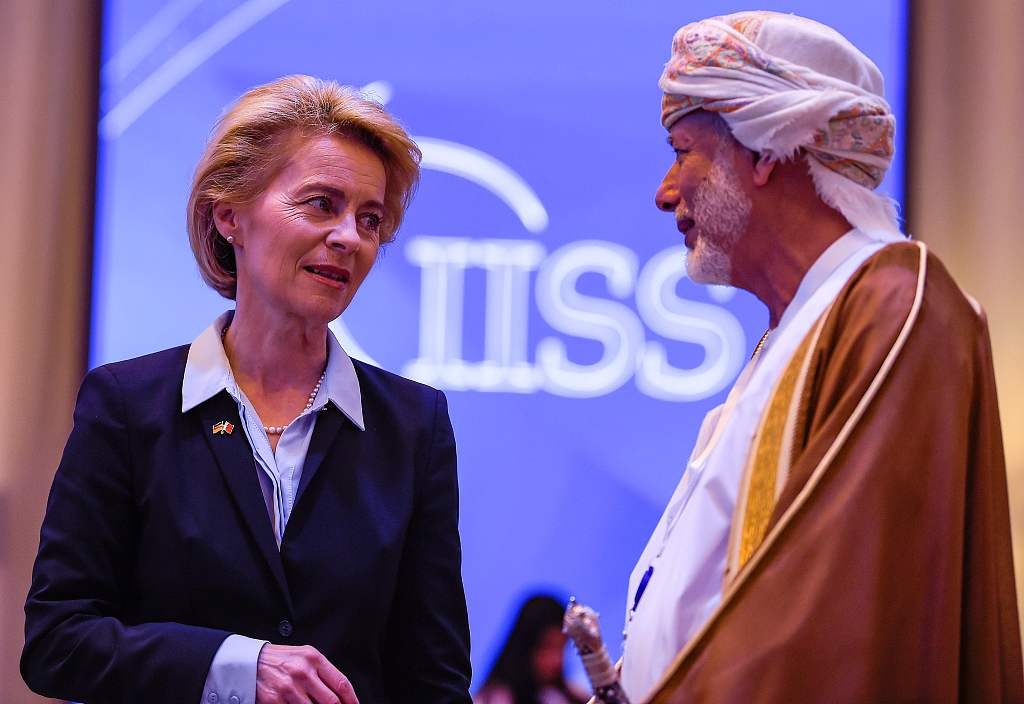
European Union leaders on Tuesday agreed on the future leadership of the EU institutions, proposing Ursula von der Leyen, current German defense minister, to be the next European Commission president. Von der Leyen is set to be the first female European Commission president.
Born and raised in Brussels, Belgium, until 13 years old, von der Leyen is a trained physician in Germany, prior to which she studied economics in Germany and the UK.
She was introduced to the Berlin stage by German Chancellor Angela Merkel in 2005.

Germany's defense minister Ursula von der Leyen chats with members of Panzerbataillon 413, which has served in Afghanistan, at the Bundeswehr combat training center during exercises in Letzlingen, Germany, January 28, 2014. /VCG Photo
Early political life
From 2005 to 2009, the mother of seven held the post of family minister. In 2009, she switched to the health department and became the minister.
Four years later in 2013, she switched to the Ministry of Defense. During her tenure, controversies over armed forces existed, including scandals ranging from far-right extremists to cost over-runs, as well as failing military equipment.
Von der Leyen still is facing some resistance in the European Parliament which must vote to confirm her nomination, with several lawmakers saying earlier that she was unacceptable.

Germany's defense minister Ursula von der Leyen attends a Franco-German joint cabinet meeting at the Elysee Palace in Paris, France, July 13, 2017. /Reuters Photo
The nomination is clearly a serious blow to the so-called process of "Spitzenkandidat," German for lead candidate.
The process, practiced in 2014 but not generally accepted or codified into law, links with European Parliament elections by having each major political group in the parliament nominate their candidate for Commission president prior to the parliamentary elections.
Before this year's parliamentary elections, political groups in the parliament named their lead candidates for the president of the European Commission, and they campaigned across the EU. But none of them was nominated to the most important EU position on Tuesday.
Jean-Claude Juncker, current president of the European Commission, agreed Tuesday's nomination would not be easy in the parliament.
However, according to Merkel, von der Leyen faced no opposition in the European Council, made up by leaders of EU's 28 member states.
Gender balance hailed in EU election

Germany's defense minister Ursula von der Leyen (L) speaks with Omani Minister of Foreign Affairs Yusuf bin Alawi during the 14th International Institute for Strategic Studies Manama Dialogue in the Bahraini capital Manama, October 27, 2018. /VCG Photo
Christine Lagarde, managing director of the International Monetary Fund (IMF), was nominated to be president of the European Central Bank.
The nomination of two women to half of the posts has been hailed by politicians as a strong signal on gender balance, which has been the popular talk before and in the summit.
"First and foremost, we have chosen two women and two men for the four key positions. A perfect gender balance. I am really happy about it. After all Europe is a woman. I think that it was worth waiting for such an outcome," said Donald Tusk, current president of the European Council who chairs the leaders' meeting.
The European Council also took note of Ursula von der Leyen's intentions to nominate Frans Timmermans and Margrethe Vestager as the highest-ranking vice presidents of the European Commission, Tusk said. That insures another female role in the highest echelons of the EU executives.
Germany and France, two power centers of the EU, each get to fill a national in the top posts, with better-known Christine Lagarde bringing international experience from the Washington-based IMF. Josep Borrell Fontelle of Spain is from southern Europe.
There are no central or eastern Europeans in the package, however. "We also expect Ursula von der Leyen to ensure an appropriate geographical balance in the team of vice presidents," Tusk said.

Copyright © 2018 CGTN. Beijing ICP prepared NO.16065310-3
Copyright © 2018 CGTN. Beijing ICP prepared NO.16065310-3